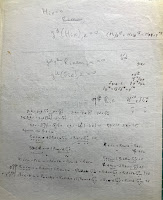 The myth of the self-made man is strong here in the United States, where it is inextricable from the American Dream. We often are tempted to idolize and then mythologize individuals who appear to have improved their own situation in life through hard work and true grit. The truth is, most of our iconoclastic heroes have relied upon a long line of minor innovations and discoveries by other people who came before them. Benjamin Franklin, Ralph Waldo Emerson, Thomas Edison, and a host of other figures have become integral threads in the fabric of our national identity based upon self-reliance.
The myth of the self-made man is strong here in the United States, where it is inextricable from the American Dream. We often are tempted to idolize and then mythologize individuals who appear to have improved their own situation in life through hard work and true grit. The truth is, most of our iconoclastic heroes have relied upon a long line of minor innovations and discoveries by other people who came before them. Benjamin Franklin, Ralph Waldo Emerson, Thomas Edison, and a host of other figures have become integral threads in the fabric of our national identity based upon self-reliance.But rarely do these myths hold up when one starts to pick at them. A great example is that of Albert Einstein. Although a brilliant theoretical physicist, Einstein relied upon other brilliant minds to support him and collaborate with him in his research. One such mind was a research assistant named John Kemeny. Kemeny, a grad student in mathematics at Princeton in the 1940s, had emigrated from Hungary because of the war. He later went on to become a professor of mathematics at Dartmouth College, where he would invent the BASIC computer programming language with colleague Thomas Kurtz. In 1970, John Kemeny became president of Dartmouth College and ushered in co-education as well as other initiatives meant to diversify the student body.
Here in Special Collections, we have evidence of the fact that it often takes teamwork, and not individual genius, to accomplish great things: an incorrect mathematical proof written out by Albert Einstein that has been dutifully corrected by Kemeny. To see it, come to Rauner and ask for MS-988, Box 22, Folder 1.